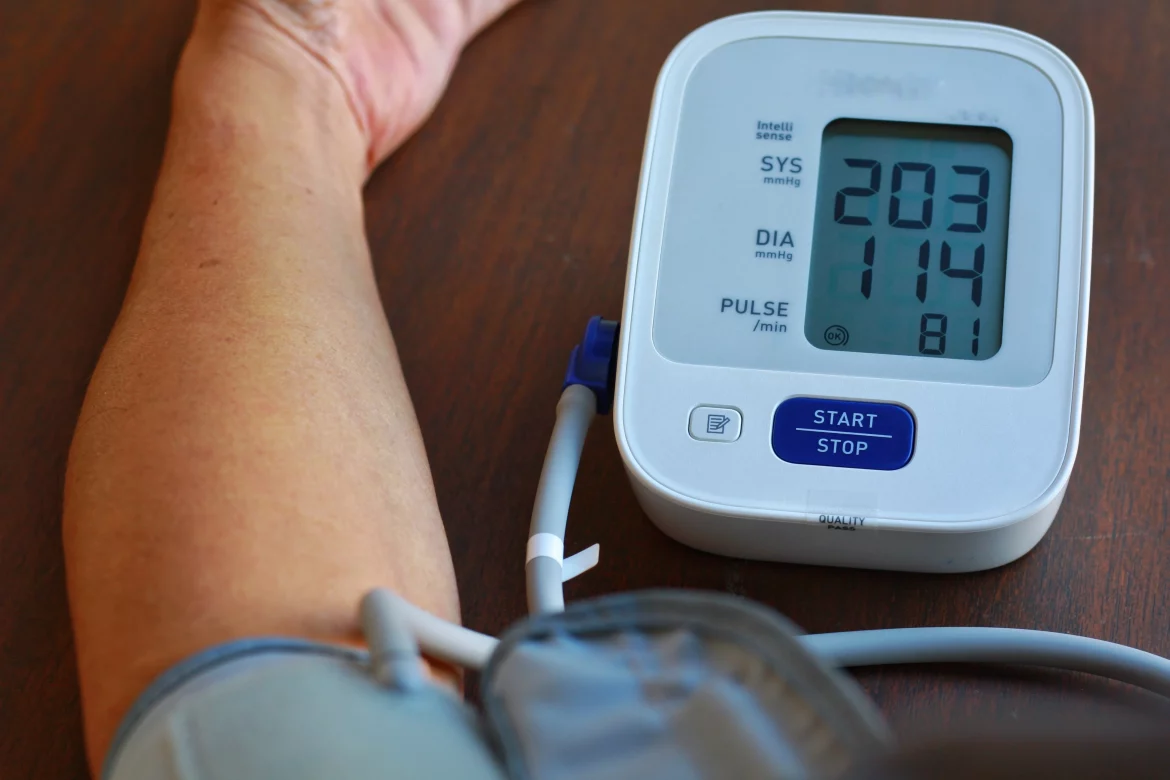Blood pressure monitoring is a crucial aspect of maintaining cardiovascular health. While many people are aware of the importance of checking blood pressure during the day, there is less clarity on when to take blood pressure readings in the evening. In this comprehensive guide, we will delve into the significance of evening blood pressure measurements, the factors that influence blood pressure in the evening, and the best practices for monitoring blood pressure at night.
Understanding Blood Pressure
Before delving into the specifics of evening blood pressure measurements, let’s first understand what blood pressure represents and why it is essential to monitor it regularly. Blood pressure is the force exerted by the blood against the walls of the arteries as the heart pumps it around the body. It is typically measured in millimeters of mercury (mmHg) and is recorded as two numbers:
1. Systolic Pressure: The higher number represents the pressure in the arteries when the heart beats and pumps blood out (systole).
2. Diastolic Pressure: The lower number represents the pressure in the arteries when the heart rests between beats (diastole).
A normal blood pressure reading is usually around 120/80 mmHg. However, blood pressure can fluctuate throughout the day and can be influenced by various factors such as physical activity, stress, diet, and time of day.
Importance of Evening Blood Pressure Monitoring
Monitoring blood pressure in the evening is important for several reasons:
1. Diurnal Variations: Blood pressure follows a natural rhythm throughout the day, known as diurnal variations. It tends to be lower during sleep and gradually rises in the morning, peaking in the late morning or early afternoon. Monitoring blood pressure in the evening provides insight into how it fluctuates over a 24-hour period.
2. Hypertension Diagnosis: Evening blood pressure readings can help in diagnosing hypertension (high blood pressure) more accurately. Some individuals may have normal blood pressure during the day but experience elevated readings in the evening, known as “evening hypertension.” This condition is associated with an increased risk of cardiovascular events.
3. Treatment Monitoring: For individuals already diagnosed with hypertension, monitoring blood pressure in the evening is essential for assessing the effectiveness of antihypertensive medications. It helps healthcare providers adjust medication dosages or timing to achieve optimal blood pressure control throughout the day and night.
4. Risk Assessment: Research suggests that elevated evening blood pressure, particularly during sleep, is a significant risk factor for cardiovascular disease, stroke, and other complications. Regular monitoring can identify individuals at higher risk and guide preventive measures.
Factors Influencing Evening Blood Pressure
Several factors can influence blood pressure in the evening:
1. Physical Activity: Engaging in strenuous physical activity or exercise in the evening can temporarily raise blood pressure. It is advisable to avoid vigorous exercise close to bedtime to allow blood pressure to normalize.
2. Dietary Habits: Consuming large meals, especially high-sodium or high-fat foods, before bedtime can impact blood pressure. Maintaining a balanced diet and avoiding excessive sodium intake is beneficial for overall cardiovascular health.
3. Stress and Emotional State: Stressful situations or emotional distress can lead to a temporary increase in blood pressure. Practicing relaxation techniques such as deep breathing, meditation, or yoga can help manage stress levels.
4. Alcohol and Caffeine: Alcohol and caffeine consumption, particularly in the evening, can affect blood pressure. Limiting alcohol intake and avoiding caffeine close to bedtime can contribute to more stable blood pressure readings.
5. Medications: Certain medications, such as decongestants, nonsteroidal anti-inflammatory drugs (NSAIDs), and some antidepressants, can influence blood pressure. It is essential to consult healthcare professionals regarding medication effects on blood pressure.
Best Practices for Evening Blood Pressure Monitoring
To ensure accurate and meaningful evening blood pressure readings, follow these best practices:
1. Consistency: Establish a consistent routine for monitoring blood pressure in the evening. Choose a quiet and comfortable environment, and avoid distractions during the measurement.
2. Timing: The optimal time for evening blood pressure measurements is typically between 6 p.m. and 9 p.m., as this period reflects the body’s natural circadian rhythm. Avoid measuring blood pressure immediately after physical activity or a stressful event.
3. Rest: Rest for at least 5 to 10 minutes before taking blood pressure readings. Sit in a relaxed position with your back supported and feet flat on the floor. Avoid crossing your legs during the measurement.
4. Cuff Positioning: Place the blood pressure cuff on your bare upper arm at heart level. Ensure a snug fit without constricting or leaving space between the cuff and arm.
5. Multiple Readings: Take two to three consecutive blood pressure readings, spaced a few minutes apart, and record the average value. This helps account for potential variability in readings.
6. Record Keeping: Maintain a blood pressure log or use a digital blood pressure monitor with memory storage to track trends over time. Share these records with your healthcare provider during regular check-ups.
7. Consultation: Discuss your evening blood pressure readings with a healthcare professional to interpret the results accurately. They can provide personalized recommendations based on your individual health status and risk factors.
Conclusion
Monitoring blood pressure in the evening is an essential component of cardiovascular health management. It provides valuable insights into blood pressure fluctuations, aids in hypertension diagnosis and treatment monitoring, and helps assess cardiovascular risk. By following best practices for evening blood pressure monitoring and maintaining open communication with healthcare providers, individuals can take proactive steps towards optimal cardiovascular wellness.


